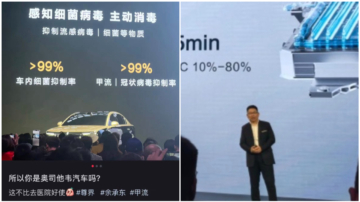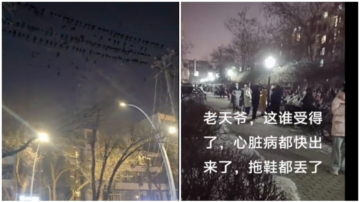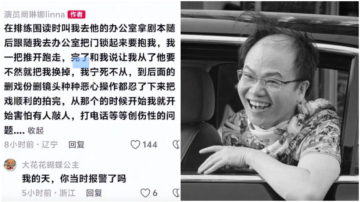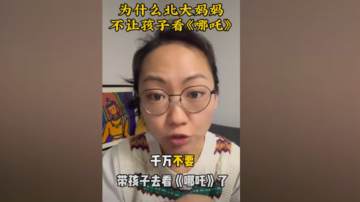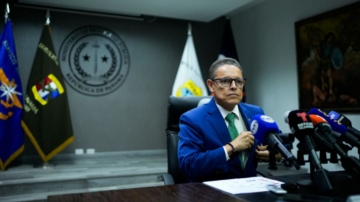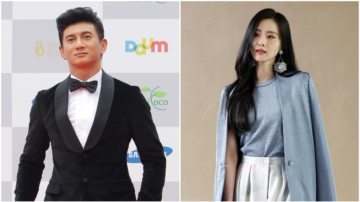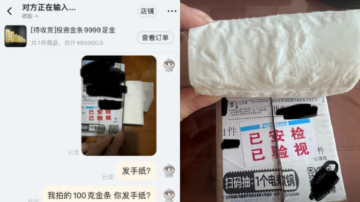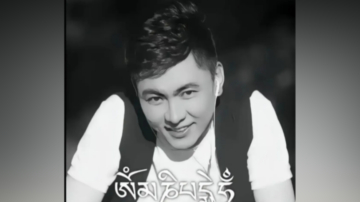【新唐人2015年02月17日訊】一直以來,中國高校領導的人事變動都是令外界矚目,而最近最熱門的話題應該是北京大學,原校長王恩哥接任北大不到2年就被撤換,由頗具爭議的浙大校長林建華接任,引發外界討論,這也是7年來北大校長第3次換人。對於中國大學校長更換為何如此頻繁?標準又是在哪?我們一起來看看下面的報導。
2月15號,浙江大學前校長林建華出任北京大學新任校長,成為北大第27任校長。
根據北京大學的新聞稿,該項人事任命是在當天上午召開的全校教師幹部大會上,由中共中央組織部副部長潘立剛宣佈的,原北京大學校長王恩哥將另有任用。
王恩哥於2013年3月接任北大校長,至今不到2年,成為近年來北大任職時間最短的一名校長。王恩哥的前任周其鳳也僅擔任4年多校長,這次人事調動,是近7年來北大校長的第三度換人,頻繁程度可謂罕見。
根據英國廣播公司《BBC》報導,近期北大校辦企業方正集團原董事長魏新、首席執行官兼董事李友、總裁兼董事餘麗等五名高管,由於被查而備受爭議,身為北大校長的王恩哥也難免受到影響。
江蘇東南大學法學院教授張讚寧:「我們中國校長的任命、更換,從來就跟高層意識形態或權力鬥爭是有很大關係的。」
旅美原大陸歷史學教授劉因全:「北京大學這次可能是因為北大方正出了事,北大方正幾個主管被抓了以後,被審查以後,有可能牽扯到原來的校長,在這種情況下,他就要換一個校長,中共一貫重視思想政治,所以中共那邊當然要以政治方面作為考量。」
被外界認爲親習近平、胡錦濤陣營的消息人士牛淚發文透露,撤換王恩哥有三大原因。第一,中共高層政治的結構性變化,特別是「之江系」幹部崛起;第二,高校意識形態工作的當前政策變化;第三,北大方正和北大青鳥等先後深度涉入高層官場腐敗要案,也可能使中共中央認為王恩哥應負管理責任。
林建華曾任北京大學副校長、常務副校長,2010年12月至2013年6月任重慶大學校長。2013年6月任浙江大學校長,2015年2月任北京大學校長。換句話說,林建華短短5年就換了三個地方。
關於浙大校長林建華調任北京大學,網路上也是討論得沸沸揚揚,浙江大學校友在微博留言表示,這說明瞭大學只是政府的一個部門而已。另一名網友說,中國大學現在只是官場。
據了解,2015年才剛開始,中國已有6所知名高校換了校長。包括北京大學、浙江大學、清華大學、中國科學技術大學、中山大學、南方科技大學。
資料顯示,美國哈佛大學371年的歷史性發展中,歷任的28位校長,平均任期超過10年。北京大學在近33年來,經歷7任校長,平均每位任期不到5年。
中國教育科學研究院研究員儲朝暉在媒體表示,這種變動對於高校的影響是顯而易見的。儲朝暉認為,一任校長在學校的任期應該在10年左右,這才能保證其擁有充分的時間實現自身的治校理想。但在行政化系統下,校長任期受行政化影響過大。
採訪編輯/黃億美 後製/葛雷
Frequent Changes to China's University Leaders
Hard to Separate Politics and Universities
Personnel changes to Chinese university leaders
have always caught the attention of the outside world.
The most popular recent topic should be former president
of Beijing University, Wang Enge, who was removed
from the position in less than two years.
The controversial president of Zhejiang University
Lin Jianhua took over this position.
This is the third change to the presidency of Beijing University
in the last seven years.
Why are there so many changes to university heads in China?
What are the standards and rules?
On Feb. 15 former Zhejiang University president, Lin Jianhua
took the position as president of Beijing University.
He became its 27th president.
According to a Beijing University news article,
the appointment was announced by Pan Ligang,deputy party
leader of the CCP Central Organization Committee.
Former president of Beijing University, Wang Enge,
will be assigned to another position.
Wang Enge became the President of Beijing University
less than two years ago in Mar. 2013.
His tenure as president was the shortest.
Wang's predecessor, Zhou Qifeng, served about four years.
This personnel change was the third in the last seven years.
The frequency of change is rare.
According to the BBC, there have been controversies about
Beijing University owned business, the Founder Group,
due to investigation of its five executives including
former chairman Wei Xin, CEO and board member, Li You,
president and board member, Yu Li, and others.
Wang Enge as president was inevitably affected.
Jiangsu Southeast University Law School professor,
Zhang Zanning: "The appointment of university leaders
is always closely related to the ideology of senior officials
or power struggles."
Former history professor from China, Liu Yinquang:
"This may be related to the trouble with the Founder Group.
The arrest and investigation of several executives
may involve the former president.
So it needs a change of president.
The CCP always attaches importance to ideology and politics.
So the CCP will take political factors into consideration."
Niu Lei, insider pro-Xi Jinping and Hu Jintao,
revealed that there were three main reasons to replace Wang Enge.
First, the political structure changes in the CCP leadership,
especially the rise of the Jiang faction;
second, the current university policy change on ideological work;
third, the Founder Group and Jade Bird's deep involvement
in high-level corruption cases may also make the CCP
Central Committee blame Wang Enge as responsible.
Lin Jianhua was once vice president and
executive vice president of Beijing University.
From Dec. 2010 to Jun. 2013 he was the president
of Chongqing University.
In Feb. 2015 he became the president of Beijing University.
Lin Jianhua changed his position three times in five years.
There are also heated discussions over the internet
about Lin Jianhua's transition to Beijing University.
Zhejiang University netizen wrote in his microblog that
university is merely a department of the government in China.
It is understood with 2015 just begun,
six well-known universities changed presidents,
including Beijing, Zhejiang,and Qinghua Universities,
also the University of Science and Technology of China,
Zhongshan University and South University of Technology.
Data show that in the 371 year history of Harvard University,
there have been 28 presidents, with average tenure of over ten years.
In the past 33 years, Beijing University has had seven presidents,
with an average term of less than five years.
Chinese Academy of Educational Sciences researcher,
Chu Zhaohui, stated to the media that
the impact of these changes on universities is obvious.
Chu Zhaohui believes that a president's term should be
about 10 years to ensure sufficient time
to achieve their school governance ideas.
However, under the political administration,
the term of office is strongly impacted by politics.
Interview & Edit/Huang Yimei Post-Production/GeLei
2月15號,浙江大學前校長林建華出任北京大學新任校長,成為北大第27任校長。
根據北京大學的新聞稿,該項人事任命是在當天上午召開的全校教師幹部大會上,由中共中央組織部副部長潘立剛宣佈的,原北京大學校長王恩哥將另有任用。
王恩哥於2013年3月接任北大校長,至今不到2年,成為近年來北大任職時間最短的一名校長。王恩哥的前任周其鳳也僅擔任4年多校長,這次人事調動,是近7年來北大校長的第三度換人,頻繁程度可謂罕見。
根據英國廣播公司《BBC》報導,近期北大校辦企業方正集團原董事長魏新、首席執行官兼董事李友、總裁兼董事餘麗等五名高管,由於被查而備受爭議,身為北大校長的王恩哥也難免受到影響。
江蘇東南大學法學院教授張讚寧:「我們中國校長的任命、更換,從來就跟高層意識形態或權力鬥爭是有很大關係的。」
旅美原大陸歷史學教授劉因全:「北京大學這次可能是因為北大方正出了事,北大方正幾個主管被抓了以後,被審查以後,有可能牽扯到原來的校長,在這種情況下,他就要換一個校長,中共一貫重視思想政治,所以中共那邊當然要以政治方面作為考量。」
被外界認爲親習近平、胡錦濤陣營的消息人士牛淚發文透露,撤換王恩哥有三大原因。第一,中共高層政治的結構性變化,特別是「之江系」幹部崛起;第二,高校意識形態工作的當前政策變化;第三,北大方正和北大青鳥等先後深度涉入高層官場腐敗要案,也可能使中共中央認為王恩哥應負管理責任。
林建華曾任北京大學副校長、常務副校長,2010年12月至2013年6月任重慶大學校長。2013年6月任浙江大學校長,2015年2月任北京大學校長。換句話說,林建華短短5年就換了三個地方。
關於浙大校長林建華調任北京大學,網路上也是討論得沸沸揚揚,浙江大學校友在微博留言表示,這說明瞭大學只是政府的一個部門而已。另一名網友說,中國大學現在只是官場。
據了解,2015年才剛開始,中國已有6所知名高校換了校長。包括北京大學、浙江大學、清華大學、中國科學技術大學、中山大學、南方科技大學。
資料顯示,美國哈佛大學371年的歷史性發展中,歷任的28位校長,平均任期超過10年。北京大學在近33年來,經歷7任校長,平均每位任期不到5年。
中國教育科學研究院研究員儲朝暉在媒體表示,這種變動對於高校的影響是顯而易見的。儲朝暉認為,一任校長在學校的任期應該在10年左右,這才能保證其擁有充分的時間實現自身的治校理想。但在行政化系統下,校長任期受行政化影響過大。
採訪編輯/黃億美 後製/葛雷
Frequent Changes to China's University Leaders
Hard to Separate Politics and Universities
Personnel changes to Chinese university leaders
have always caught the attention of the outside world.
The most popular recent topic should be former president
of Beijing University, Wang Enge, who was removed
from the position in less than two years.
The controversial president of Zhejiang University
Lin Jianhua took over this position.
This is the third change to the presidency of Beijing University
in the last seven years.
Why are there so many changes to university heads in China?
What are the standards and rules?
On Feb. 15 former Zhejiang University president, Lin Jianhua
took the position as president of Beijing University.
He became its 27th president.
According to a Beijing University news article,
the appointment was announced by Pan Ligang,deputy party
leader of the CCP Central Organization Committee.
Former president of Beijing University, Wang Enge,
will be assigned to another position.
Wang Enge became the President of Beijing University
less than two years ago in Mar. 2013.
His tenure as president was the shortest.
Wang's predecessor, Zhou Qifeng, served about four years.
This personnel change was the third in the last seven years.
The frequency of change is rare.
According to the BBC, there have been controversies about
Beijing University owned business, the Founder Group,
due to investigation of its five executives including
former chairman Wei Xin, CEO and board member, Li You,
president and board member, Yu Li, and others.
Wang Enge as president was inevitably affected.
Jiangsu Southeast University Law School professor,
Zhang Zanning: "The appointment of university leaders
is always closely related to the ideology of senior officials
or power struggles."
Former history professor from China, Liu Yinquang:
"This may be related to the trouble with the Founder Group.
The arrest and investigation of several executives
may involve the former president.
So it needs a change of president.
The CCP always attaches importance to ideology and politics.
So the CCP will take political factors into consideration."
Niu Lei, insider pro-Xi Jinping and Hu Jintao,
revealed that there were three main reasons to replace Wang Enge.
First, the political structure changes in the CCP leadership,
especially the rise of the Jiang faction;
second, the current university policy change on ideological work;
third, the Founder Group and Jade Bird's deep involvement
in high-level corruption cases may also make the CCP
Central Committee blame Wang Enge as responsible.
Lin Jianhua was once vice president and
executive vice president of Beijing University.
From Dec. 2010 to Jun. 2013 he was the president
of Chongqing University.
In Feb. 2015 he became the president of Beijing University.
Lin Jianhua changed his position three times in five years.
There are also heated discussions over the internet
about Lin Jianhua's transition to Beijing University.
Zhejiang University netizen wrote in his microblog that
university is merely a department of the government in China.
It is understood with 2015 just begun,
six well-known universities changed presidents,
including Beijing, Zhejiang,and Qinghua Universities,
also the University of Science and Technology of China,
Zhongshan University and South University of Technology.
Data show that in the 371 year history of Harvard University,
there have been 28 presidents, with average tenure of over ten years.
In the past 33 years, Beijing University has had seven presidents,
with an average term of less than five years.
Chinese Academy of Educational Sciences researcher,
Chu Zhaohui, stated to the media that
the impact of these changes on universities is obvious.
Chu Zhaohui believes that a president's term should be
about 10 years to ensure sufficient time
to achieve their school governance ideas.
However, under the political administration,
the term of office is strongly impacted by politics.
Interview & Edit/Huang Yimei Post-Production/GeLei

